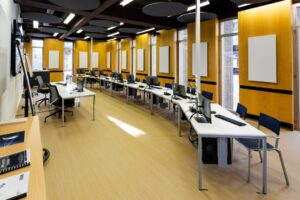The project at a glance
-
Start date:01 Mar 2023
-
Duration in months:36
-
Funding:FNR CORE
-
Principal Investigator(s):Andreas Hein
About
Luxembourg has been successful in creating, in a very short time, a space ecosystem with over 60 startups, addressing diverse short-term to long-term business cases. This has positioned the Grand Duchy as a global hotspot for established and emerging actors from the international space economy. However, an architecture (high-level design) of Luxembourg’s space programme is currently missing, one that describes which space missions are conducted in which order and which space systems, technologies, and actors exist, will exist, or should be developed. A space program architecture is a high-level description of a space programme. It would support steering the strategy of the Luxembourg space ecosystem, but also guide companies on where to position themselves within that ecosystem. While a high-level space roadmap exists for Luxembourg, it does not provide much detail on how the underlying actors, technologies, space missions, and their sequencing are linked to address key economic and societal factors. SAMP will combine model-based systems engineering (MBSE) and concurrent engineering to enable decision-makers and stakeholders to collaboratively make complex strategic decisions at unprecedented speeds and depth. It’s like a situation room on steroids. In particular, the main focus of this project will be on the development of a conceptual framework of space program architectures and the more detailed development of a meta model/data model of space program architectures, including the definition of high-level simulation models that are used for sizing technologies, systems, and missions. The methodology is primarily based on a combination of literature survey and expert reviews to define the conceptual framework and data model. In addition, use cases and case studies are used for validating the resulting models. These use cases are either linked to the current Luxembourg space ecosystem, or might even come from outside the space sector, e.g. the sustainable energy transition. And vice-versa: while SAMP focuses on space programmes, the method is intended to be applied to other strategic decisions as well, such as energy, mobility, and sustainability.
Organisation and Partners
- Interdisciplinary Centre for Security, Reliability and Trust (SnT)
- Space Systems Engineering (SpaSys)
Project team
-
Andreas Hein
-
Maxime Cordy
-
Loveneesh Rana
-
Sami Larzreg
Keywords
- Model-based systems engineering
- Concurrent engineering
- Space programme
- Space program architecture
- Space systems
